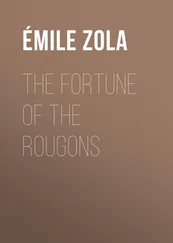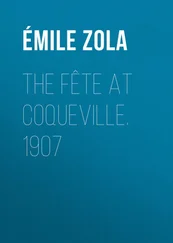Émile Zola - The Downfall
Здесь есть возможность читать онлайн «Émile Zola - The Downfall» — ознакомительный отрывок электронной книги совершенно бесплатно, а после прочтения отрывка купить полную версию. В некоторых случаях можно слушать аудио, скачать через торрент в формате fb2 и присутствует краткое содержание. Жанр: literature_19, foreign_antique, foreign_prose, на английском языке. Описание произведения, (предисловие) а так же отзывы посетителей доступны на портале библиотеки ЛибКат.
- Название:The Downfall
- Автор:
- Жанр:
- Год:неизвестен
- ISBN:нет данных
- Рейтинг книги:5 / 5. Голосов: 1
-
Избранное:Добавить в избранное
- Отзывы:
-
Ваша оценка:
- 100
- 1
- 2
- 3
- 4
- 5
The Downfall: краткое содержание, описание и аннотация
Предлагаем к чтению аннотацию, описание, краткое содержание или предисловие (зависит от того, что написал сам автор книги «The Downfall»). Если вы не нашли необходимую информацию о книге — напишите в комментариях, мы постараемся отыскать её.
The Downfall — читать онлайн ознакомительный отрывок
Ниже представлен текст книги, разбитый по страницам. Система сохранения места последней прочитанной страницы, позволяет с удобством читать онлайн бесплатно книгу «The Downfall», без необходимости каждый раз заново искать на чём Вы остановились. Поставьте закладку, и сможете в любой момент перейти на страницу, на которой закончили чтение.
Интервал:
Закладка:
“Is your sister young?”
“Just my age; you know I told you we are twins.”
“Is she like you?”
“Yes, she is fair-haired, too; and oh! such pretty curling hair! She is a mite of a woman, with a little thin face, not one of your noisy, flashy hoydens, ah, no! – Dear Henriette!”
“You love her very dearly!”
“Yes, yes – ”
There was silence between them after that, and Jean, glancing at Maurice, saw that his eyes were closing and he was about to fall.
“Hallo there, old fellow! Come, confound it all, brace up! Let me take your gun a moment; that will give you a chance to rest. They can’t have the cruelty to make us march any further to-day! we shall leave half our men by the roadside.”
At that moment he caught sight of Osches lying straight ahead of them, its few poor hovels climbing in straggling fashion up the hillside, and the yellow church, embowered in trees, looking down on them from its perch upon the summit.
“There’s where we shall rest, for certain.”
He had guessed aright; General Douay saw the exhausted condition of the troops, and was convinced that it would be useless to attempt to reach la Besace that day. What particularly influenced his determination, however, was the arrival of the train, that ill-starred train that had been trailing in his rear since they left Rheims, and of which the nine long miles of vehicles and animals had so terribly impeded his movements. He had given instructions from Quatre-Champs to direct it straight on Saint-Pierremont, and it was not until Osches that the teams came up with the corps, in such a state of exhaustion that the horses refused to stir. It was now five o’clock; the general, not liking the prospect of attempting the pass of Stonne at that late hour, determined to take the responsibility of abridging the task assigned them by the marshal. The corps was halted and proceeded to encamp; the train below in the meadows, guarded by a division, while the artillery took position on the hills to the rear, and the brigade detailed to act as rear-guard on the morrow rested on a height facing Saint-Pierremont. The other division, which included Bourgain-Desfeuilles’ brigade, bivouacked on a wide plateau, bordered by an oak wood, behind the church. There was such confusion in locating the bodies of troops that it was dark before the 106th could move into its position at the edge of the wood.
“ Zut !” said Chouteau in a furious rage, “no eating for me; I want to sleep!”
And that was the cry of all; they were overcome with fatigue. Many of them lacked strength and courage to erect their tents, but dropping where they stood, at once fell fast asleep on the bare ground. In order to eat, moreover, rations would have been necessary, and the commissary wagons, which were waiting for the 7th corps to come to them at la Besace, could not well be at Osches at the same time. In the universal relaxation of order and system even the customary corporal’s call was omitted: it was everyone for himself. There were to be no more issues of rations from that time forth; the soldiers were to subsist on the provisions they were supposed to carry in their knapsacks, and that evening the sacks were empty; few indeed were those who could muster a crust of bread or some crumbs of the abundance in which they had been living at Vouziers of late. There was coffee, and those who were not too tired made and drank it without sugar.
When Jean thought to make a division of his wealth by eating one of his biscuits himself and giving the other to Maurice, he discovered that the latter was sound asleep. He thought at first he would awake him, but changed his mind and stoically replaced the biscuits in his sack, concealing them with as much caution as if they had been bags of gold; he could get along with coffee, like the rest of the boys. He had insisted on having the tent put up, and they were all stretched on the ground beneath its shelter when Loubet returned from a foraging expedition, bringing in some carrots that he had found in a neighboring field. As there was no fire to cook them by they munched them raw, but the vegetables only served to aggravate their hunger, and they made Pache ill.
“No, no; let him sleep,” said Jean to Chouteau, who was shaking Maurice to wake him and give him his share.
“Ah,” Lapoulle broke in, “we shall be at Angouleme to-morrow, and then we’ll have some bread. I had a cousin in the army once, who was stationed at Angouleme. Nice garrison, that.”
They all looked surprised, and Chouteau exclaimed:
“Angouleme – what are you talking about! Just listen to the bloody fool, saying he is at Angouleme!”
It was impossible to extract any explanation from Lapoulle. He had insisted that morning that the uhlans that they sighted were some of Bazaine’s troops.
Then darkness descended on the camp, black as ink, silent as death. Notwithstanding the coolness of the night air the men had not been permitted to make fires; the Prussians were known to be only a few miles away, and it would not do to put them on the alert; orders even were transmitted in a hushed voice. The officers had notified their men before retiring that the start would be made at about four in the morning, in order that they might have all the rest possible, and all had hastened to turn in and were sleeping greedily, forgetful of their troubles. Above the scattered camps the deep respiration of all those slumbering crowds, rising upon the stillness of the night, was like the long-drawn breathing of old Mother Earth.
Suddenly a shot rang out in the darkness and aroused the sleepers. It was about three o’clock, and the obscurity was profound. Immediately everyone was on foot, the alarm spread through the camp; it was supposed the Prussians were attacking. It was only Loubet who, unable to sleep longer, had taken it in his head to make a foray into the oak-wood, which he thought gave promise of rabbits: what a jolly good lark it would be if he could bring in a pair of nice rabbits for the comrades’ breakfast! But as he was looking about for a favorable place in which to conceal himself, he heard the sound of voices and the snapping of dry branches under heavy footsteps; men were coming toward him; he took alarm and discharged his piece, believing the Prussians were at hand. Maurice, Jean, and others came running up in haste, when a hoarse voice made itself heard:
“For God’s sake, don’t shoot!”
And there at the edge of the wood stood a tall, lanky man, whose thick, bristling beard they could just distinguish in the darkness. He wore a gray blouse, confined at the waist by a red belt, and carried a musket slung by a strap over his shoulder. He hurriedly explained that he was French, a sergeant of francs-tireurs, and had come with two of his men from the wood of Dieulet, bringing important information for the general.
“Hallo there, Cabasse! Ducat!” he shouted, turning his head, “hallo! you infernal poltroons, come here!”
The men were evidently badly scared, but they came forward. Ducat, short and fat, with a pale face and scanty hair; Cabasse short and lean, with a black face and a long nose not much thicker than a knife-blade.
Meantime Maurice had stepped up and taken a closer look at the sergeant; he finally asked him:
“Tell me, are you not Guillaume Sambuc, of Remilly?”
And when the man hesitatingly answered in the affirmative Maurice recoiled a step or two, for this Sambuc had the reputation of being a particularly hard case, the worthy son of a family of woodcutters who had all gone to the bad, the drunken father being found one night lying by the roadside with his throat cut, the mother and daughter, who lived by begging and stealing, having disappeared, most likely, in the seclusion of some penitentiary. He, Guillaume, did a little in the poaching and smuggling lines, and only one of that litter of wolves’ whelps had grown up to be an honest man, and that was Prosper, the hussar, who had gone to work on a farm before he was conscripted, because he hated the life of the forest.
Читать дальшеИнтервал:
Закладка:
Похожие книги на «The Downfall»
Представляем Вашему вниманию похожие книги на «The Downfall» списком для выбора. Мы отобрали схожую по названию и смыслу литературу в надежде предоставить читателям больше вариантов отыскать новые, интересные, ещё непрочитанные произведения.
Обсуждение, отзывы о книге «The Downfall» и просто собственные мнения читателей. Оставьте ваши комментарии, напишите, что Вы думаете о произведении, его смысле или главных героях. Укажите что конкретно понравилось, а что нет, и почему Вы так считаете.












